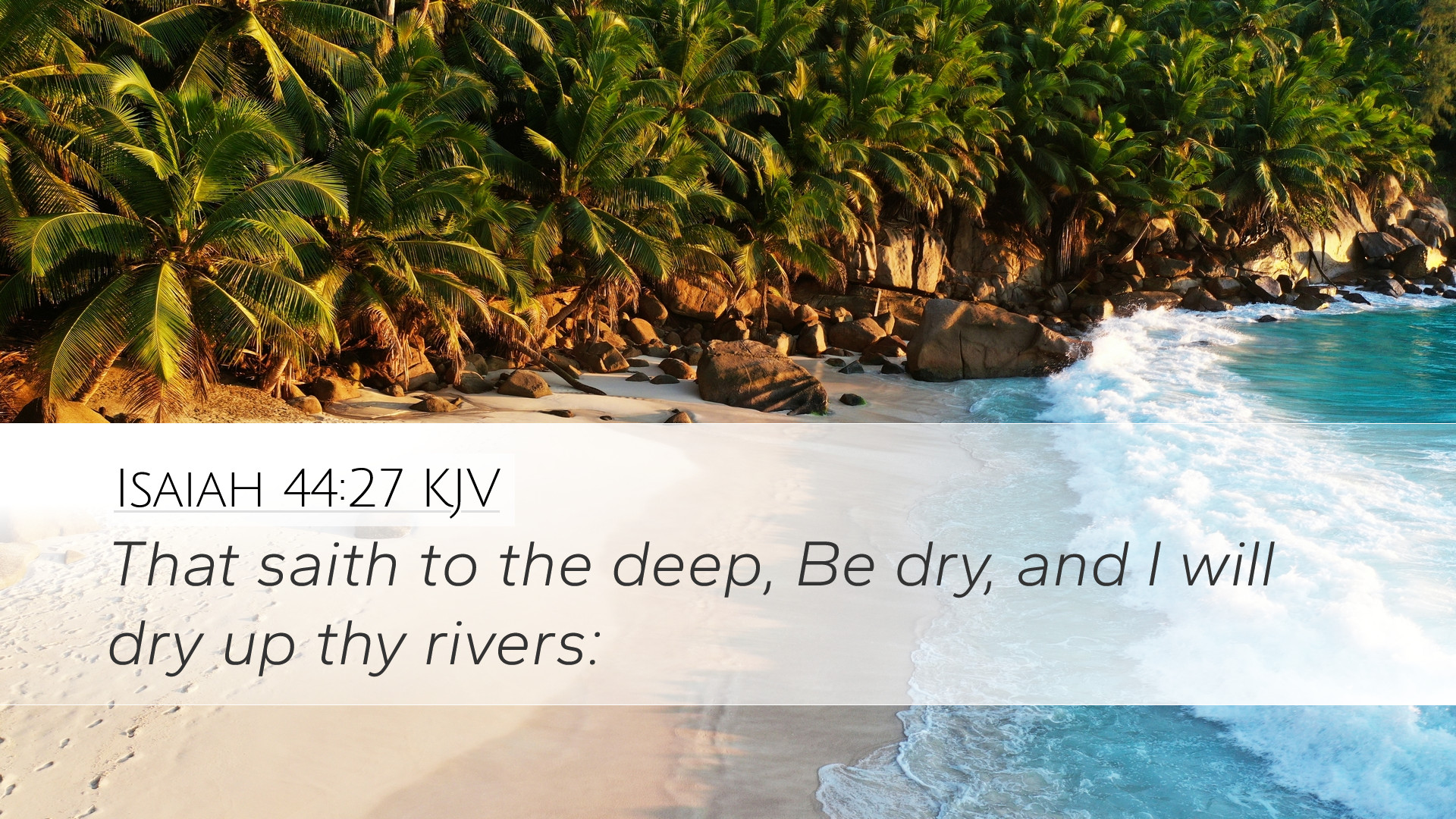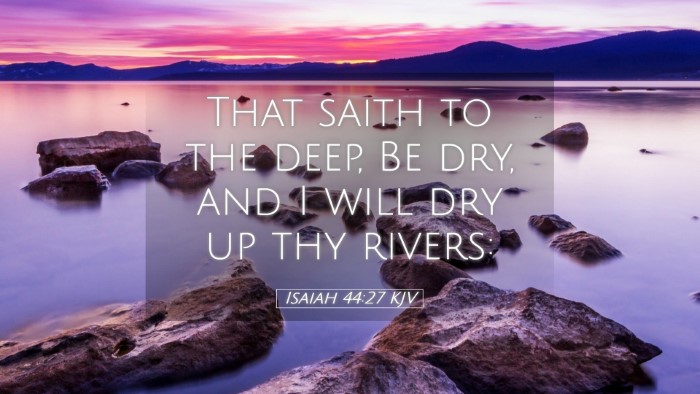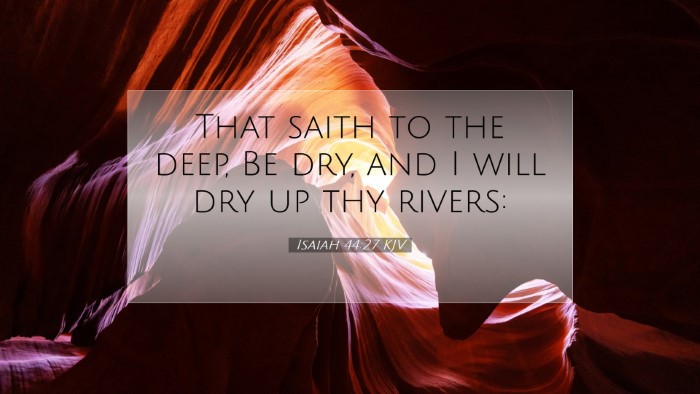Commentary on Isaiah 44:27
Isaiah 44:27 states, "That saith to the deep, Be dry, and I will dry up thy rivers." This verse highlights God's sovereign power over creation, particularly His authority over water and the natural elements. Various public domain commentaries offer significant insights into understanding the broader implications of this declaration.
Understanding the Context
The book of Isaiah is rich with prophetic messages directed towards both Israel and surrounding nations. In this section, Isaiah speaks of the promise of redemption and restoration for Israel, amidst the context of their impending exile and eventual return. The mention of God's command to the deep connects to His creative and sustaining power, reminiscent of His actions during creation as described in Genesis.
Theological Implications
This verse reflects several theological themes which are key to biblical understanding:
- Sovereignty of God: The assertion that God can command the deep signals His ultimate authority over nature and emphasizes that all creation is subject to His will.
- Power over Chaos: The deep often represents chaos in biblical literature. God's ability to dry up the rivers illustrates His power to bring order from chaos.
- Divine Intervention: This pronouncement is a promise of intervention in the lives of God's people, demonstrating that He can control environmental conditions for their benefit.
Commentary Insights
Matthew Henry
Matthew Henry emphasizes God's omnipotence and faithfulness to His promises. He notes that God, who creates and controls the elements, assures believers that He can remove obstacles from their paths. Henry comments on the metaphor of drying up rivers, suggesting that it symbolizes removing any hindrance to the Israelites' return from Babylon. Just as God commands the waters, He can also command circumstances to fulfill His divine plan for His people.
Albert Barnes
Albert Barnes offers an analytical approach, highlighting the significance of God's interaction with nature. He argues that this verse exemplifies the foundational truth that all aspects of creation obey God's commands. Barnes relates the drying up of rivers to historical events, such as the drying of the Red Sea and the Jordan River, illustrating how God provides for His people. This act serves not only as a literal promise but also as a reminder of God's ongoing relationship with His creation.
Adam Clarke
Adam Clarke’s commentary delves into the imagery used in Isaiah. He connects the mention of the deep and rivers to God's previous acts of deliverance, signifying hope for the exiled Israelites. Clarke points out that this prophecy serves as reassurance; despite the bleak circumstances of captivity, God is in control and capable of enacting deliverance. He encourages readers to find comfort in God's promises, as He has the power to turn situations around for His people.
Practical Applications
For pastors, students, theologians, and Bible scholars, this verse offers vital lessons:
- Encouragement in Trials: Believers can find comfort in knowing that just as God has power over nature, He has authority over their personal struggles and crises.
- The Importance of Faith: This verse calls for a response of faith, trusting in God's ability to intervene even in seemingly impossible situations.
- Witness to the World: Understanding God's sovereignty empowers Christians to testify to His mighty works in their lives and encourages them to share the Gospel of His power and grace.
Conclusion
Isaiah 44:27 serves as a profound reminder of God’s sovereign authority and His ability to command all aspects of the natural world for the benefit of His people. With insights drawn from notable public domain commentaries, we see not only the historical context and theological depth of this verse but also its relevance for contemporary faith. As believers reflect on God's promises, they are encouraged to trust in His power to bring about restoration and order in their lives, drawing comfort from the knowledge that He is ever-present and actively involved in human history.


